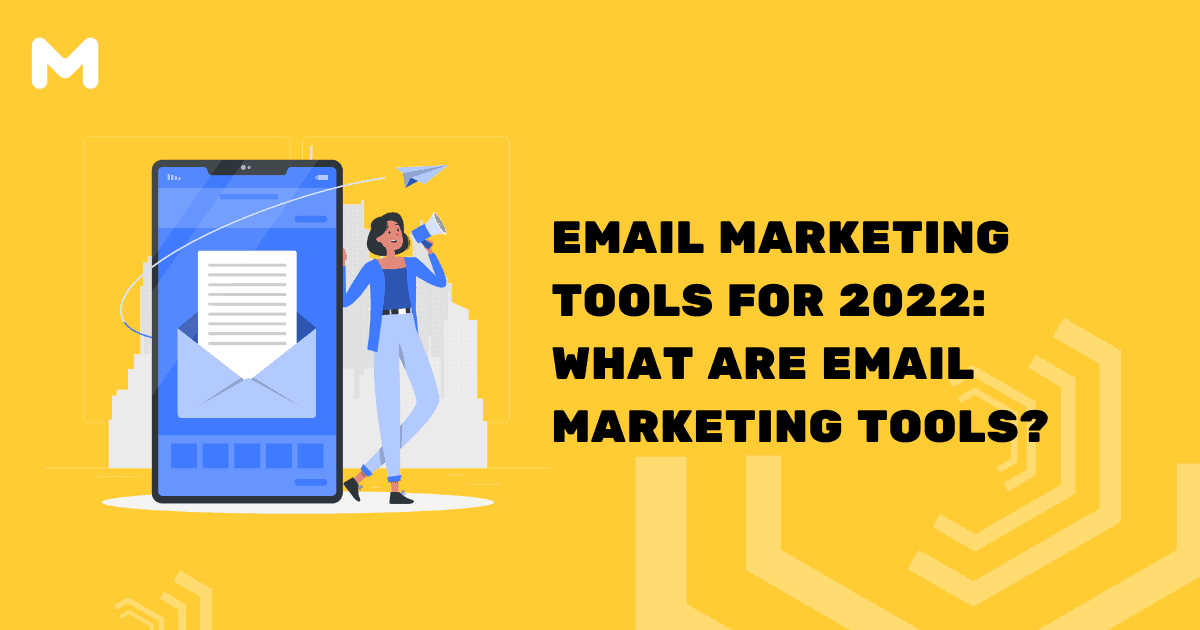Email marketing tools are different forms of software that enable marketers to build, send, optimize, and monitor email campaigns as they progress. A single tool, such as an email subject line generator or an inbox placement testing tool, or a collection of tools that enable a marketer to oversee every stage of email marketing, are both examples of email marketing tools. Although there are many other kinds of email marketing tools, the most common kind is an ESP, or email service provider.
When selecting an ESP or any other form of email marketing software solution, you should make sure that the features offered are precisely suited to your strategic company goals. Businesses spend too much money on tools that include features they don’t actually need or use. Some people choose an ESP that doesn’t have all the functions they require in an effort to save money. Some of the top email marketing tools available are listed below:
1) Mailchimp:
“Long ago, MailChimp earned a reputation in the field of email marketing thanks in large part to the fact that it is free to use (in a limited capacity). With this platform, you can create lists from scratch, import subscribers, personalize your emails, and track them all in one place. It’s convenient for beginners. Even your CTAs may be optimized with it to boost subscriber numbers. They also provide a huge selection of excellent email newsletter templates,” says Tiffany Payne, Head of Content at PharmacyOnline.co.uk. Mailchimp also integrates seamlessly with other marketing tools, making it a versatile choice for businesses looking to streamline their campaigns. Additionally, its compatibility with social media analytics tools allows users to track the performance of their email campaigns alongside their social media efforts, ensuring a cohesive marketing strategy. With its user-friendly interface and robust features, Mailchimp continues to be a popular choice for both new and experienced marketers.
2) Sendinblue:
“Sendinblue is an all-in-one marketing software with features such as Marketing Automation, SMS, Email Marketing, Chat, Landing Pages, CRM, Shared Inbox, and more. With the forever-free plan, you can send up to 300 emails per day and save an unlimited number of contacts. To send even more emails, you can pay according to the monthly email volume. You may also manage your complete marketing funnel in one place,” says James Crawford, Co-founder of Deal Drop.
3) Constant Contact:
“One of the most effective email marketing platforms out right now is Constant Contact. With it, you can create the ideal email newsletter using a good amount of email templates and benefit from features tailored to your sector (including promotional ideas). Additionally, you’ll get help in the form of user-based discussion forums and live chat, allowing you to receive instant feedback on your ideas and/or technical support” says Lauren Grey from Divein.
4) HubSpot:
“You can find anything you need at HubSpot. Up to 2,000 emails per month, over 100 lists, and reporting are all included as part of the comprehensive and extremely rich email marketing features. You may add other HubSpot solutions for CRM, complete marketing automation, customer care, sales, and more when you’re ready to scale.
As soon as signup is complete, the email tool launches the editor so you can get started right away. The user guide, which covers all you need to know to create stunning, successful campaigns in HubSpot, is the next stop for individuals who are new to HubSpot or email marketing” says Nely Mihaylova from Scooter. guide.
5) Omnisend:
“While Omnisend is one of the most capable email marketing tools out there, user usability is not compromised. A drag-and-drop graphic builder, email capture capabilities, and a wealth of templates for both email and automation processes are all part of the comprehensive set of email marketing services offered by Omnisend. With Omnisend, you can combine many channels—including email, SMS, push notifications, Facebook Messenger, WhatsApp, and more—into a single automation workflow” says Aston Rayner from NextLuxury.
6) Moosend:
“A platform for marketing automation and email marketing all in one, Moosend has easy-to-use features and a steep learning curve. In addition to its essential email marketing features and user-friendly drag-and-drop email editor, you can make educated decisions by analyzing your stats, creating subscription forms, and using automation recipes,” says Mark Osborne, Director of Prestige Roof Lanterns.
7) SendX:
“For email marketers, SendX offers a wide range of features, including the ability to construct an email list from scratch and the ability to create landing pages and opt-in forms to increase conversions and subscriber counts, respectively. Furthermore, several automation tools are pre-installed, allowing you to deliver the appropriate messages to the appropriate recipients at the right time,” says Dean Lee from Sealions.
8) Zoho Campaigns:
“Of all the apps our company has tried, Zoho Campaigns has the most adaptable, generous free plan. With 2,000 contacts and 12,000 sends per month, the subscriber and email sending limits aren’t outrageous, but the free plan also comes with full automation features, advanced audience segmentation, and a tonne of beautiful and skillful templates. The drag-and-drop editor works as you would anticipate and supports dynamic content blocks. Dynamic blocks can even be customized based on your customer segments,” says Mark Osborne, Managing Director of Windows Doors UK.
Wrap Up:
Any effective marketing campaign that aims to increase brand awareness and loyalty must use email as a key element. You’ll have plenty of options these days, but I think the above solutions are the best of the best. They integrate automation and integrations with a simple email and campaign design. This guide offers a solid overview of each service, despite the fact that costs and particular features vary.
